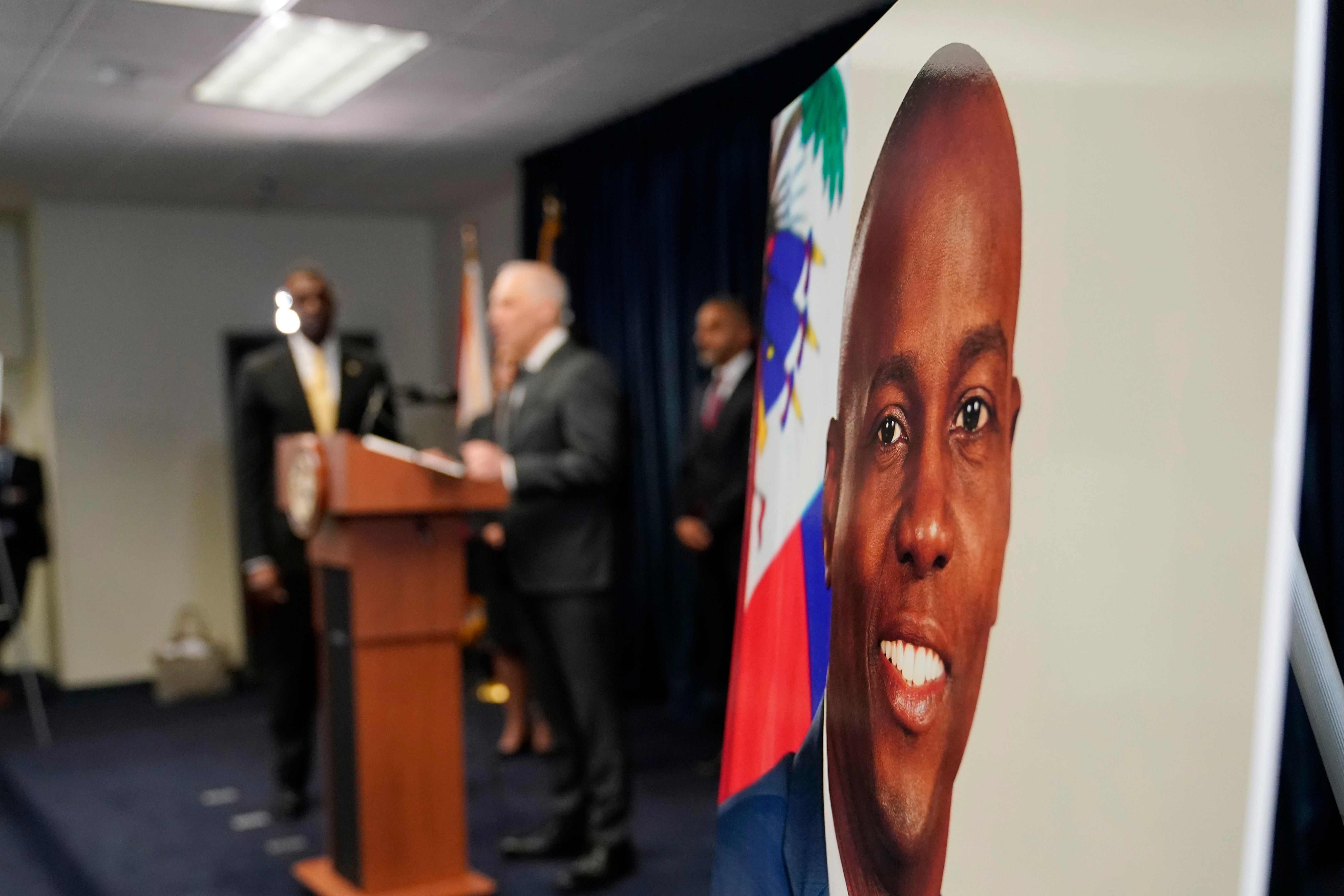Retired Colombian army officer gets life sentence in 2021 assassination of Haiti's president
A federal judge in Miami has sentenced a retired Colombian army officer to life in prison for his role in plotting to kill Haiti’s President Jovenel Moïse in 2021

A federal judge in Miami on Friday sentenced a retired Colombian army officer to life in prison for his role in plotting to kill Haiti's President Jovenel Moïse in 2021, which caused unprecedented turmoil in the Caribbean nation.
Germán Alejandro Rivera García, 45, is the second of 11 suspects detained and charged in Miami to be sentenced in what U.S. prosecutors have described as a conspiracy hatched in both Haiti and Florida to hire mercenaries to kidnap or kill Moïse, who was slain at his private home near the Haitian capital of Port-Au-Prince on July 7, 2021.
Rivera, also known as “Colonel Mike," had pleaded guilty in September to conspiring and supporting a plot to kill the Haitian president. According to court documents, he was part of a convoy headed to Moïse's residence the day of the killing, after he relayed information that the plan was not to kidnap the president but rather kill him.
Rivera faced the maximum penalty of up to life imprisonment and now hopes that his sentence could be reduced in the future as part of a cooperation agreement he has signed with U.S. authorities.
Sometimes U.S. attorneys recommend judges to reduce a sentence if they determine that the convicted person helps with their investigation.
Federal Judge José E. Martínez handed down the sentence at a hearing in Miami that lasted less than 30 minutes.
“Good luck to you, Mr. Rivera,” the judge said after accepting to make a recommendation for the Colombian to remain at a South Florida federal prison, as he requested.
The sentencing came just months after Haitian-Chilean businessman Rodolphe Jaar was sentenced to life in prison in June for his role in Moïse's killing. Meanwhile, former Haitian senator John Joel Joseph is set to be sentenced in December. Eight more defendants are waiting trial next year in the United States.
Rivera entered the hearing wearing a prisoner's beige shirt and pants. He was handcuffed and had shackles on his ankles as he listened to the judge's ruling seated next to his attorney.
The Colombian declined to make statements when the judge asked him if he had anything to say. “Not at the moment, your honor,” Rivera answered.
According to the charges, Rivera, Jaar, Joseph and others, including about 20 Colombian citizens and several dual Haitian-American citizens, participated in the plot. The conspirators initially planned to kidnap the Haitian president, and later changed the plan to kill him. Investigators allege the plotters had hoped to win contracts under a successor to Moïse.
Moïse was killed when assailants broke into his home. He was 53 years old.
Meanwhile, more than 40 suspects in the case remain detained in Haiti and have languished in prison more than two years after the assassination as the newest investigative judge continues his interrogations. Among those arrested after the killing are 18 former Colombian soldiers, who are in custody in Haiti.
The case received a boost last week when police arrested Joseph Félix Badio, a key suspect who once worked at Haiti’s Ministry of Justice and at the government’s anti-corruption unit. He was detained in the capital of Port-au-Prince after more than two years on the run.
Since the assassination, Haiti has experienced a surge of gang violence that led the prime minister to request the deployment of an armed force. In early October, the U.N. Security Council voted to send a multinational force led by Kenya to help fight the gangs.
Kenya has not announced a deployment date.
Bookmark popover
Removed from bookmarks